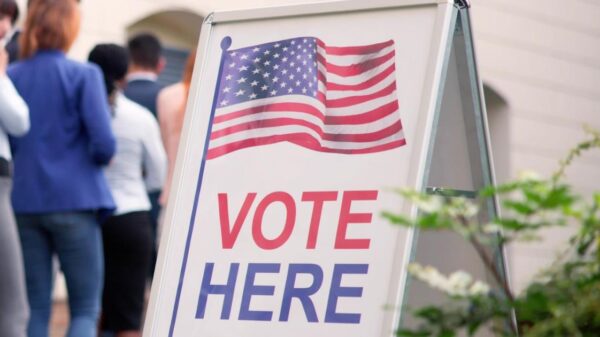Earlier this month, the House Armed Services Committee approved the National Defense Authorization Act (NDAA) for Fiscal Year 2022, an annual bill that authorizes military spending and sets defense policy.
The bill, which is expected to be brought to the floor of the U.S. House in the coming weeks, contains numerous provisions spearheaded by U.S. Rep. Stephanie Murphy, D-Fla., who serves as the vice chairwoman of the U.S. House Intelligence and Special Operations Subcommittee. These include measures to protect U.S. service members from threats from foreign governments, to counter aggression by the Chinese Communist Party, to support the U.S.-Israel alliance, and to strengthen Orlando’s modeling, simulation, and training sector. Murphy also voted to increase overall funding for Department of Defense programs to $740 billion, nearly $25 billion above the funding level requested by the Biden administration, including a 2.7 percent pay increase for U.S. service members.
“There is nothing more important than keeping the American people safe. Our country faces a complex array of threats from terrorist organizations and authoritarian countries like China, Russia, and Iran,” said Murphy, a former national security specialist at the Department of Defense during President George W. Bush’s administration. “The Armed Services Committees have successfully worked in a bipartisan way to craft a bill that will deter our adversaries, support our allies and partners, and provide our troops with the resources they need to accomplish their missions and keep us safe.”
The NDAA contains numerous Murphy-led measures, including:
A provision requiring the Secretary of Defense to swiftly brief key Members of Congress if the Secretary determines with high confidence that a foreign government is seeking to kill or severely injure U.S. service members, either directly or indirectly through proxy forces. Once notified, Congress will be in a position to take action to deter and respond to such aggression. The text of this provision was taken from Murphy’s bipartisan bill, the DEFEND Act.
A measure, drawn from bipartisan legislation introduced by Murphy, to require the Secretary of Defense, in consultation with the Secretary of State and the Director of National Intelligence, to prepare a report that identifies efforts by the Government of the People’s Republic of China to expand its presence and influence in Latin America and the Caribbean through diplomatic, military, and economic means, and describes the implications of such efforts for U.S. national security interests.
An amendment that provides the Department of Defense with $5 million to conduct a competition in which small businesses in the modeling and simulation sector are awarded prizes for developing technological solutions to emerging national security challenges. Murphy’s Orlando-area district is a world leader in modeling and simulation and Murphy co-chairs the Congressional Modeling & Simulation Caucus.
Language requiring the Assistant Secretary of Defense for Special Operations and Low-Intensity Conflict, in coordination with the commander of U.S. Special Operations Command, to brief Congress on all current and planned collaborative activities between U.S. and Israeli special operations forces.
Additionally, the bill includes Murphy-led provisions to:
Require the Assistant Secretary of Defense for Special Operations and Low-Intensity Conflict, in coordination with the commander of U.S. Special Operations Command, to provide a report on the current and projected force posture, capabilities, and activities of special operations forces in Latin America and the Caribbean, and how they advance U.S. national security objectives and address evolving threats from state and non-state actors emanating from this critical region.
Recognize the Memorial, the Memorial Garden, and the K9 Memorial within the National Navy SEAL Museum in Fort Pierce, Florida as the official national memorial, memorial garden, and K9 memorial of the Navy SEALs. This provision was drawn from a bipartisan bill authored by Murphy and U.S. Rep. Brian Mast, R-Fla.
Provide an additional $5.2 million to enable U.S. Naval Special Warfare Command to purchase advanced combat diving equipment, some of which is manufactured by a small business in Murphy’s Orlando-area district.
Require the Assistant Secretary of Defense for Special Operations and Low-Intensity Conflict to prepare a long-term strategy for U.S. special operations forces to recruit and retain individuals who are proficient in critical foreign languages. This is especially important as special operators focus more of their attention on great power competition with nations like China, Russia, and Iran.
U.S. Rep. Mike Waltz, R-Fla., the first Green Beret to serve in Congress, also helped shape the NDAA.
“As a Green Beret and combat veteran, I know firsthand how important a well-equipped, well-prepared military force to protect our great country,” said Waltz. “Right now, our country faces numerous threats from adversaries like China, whose technology and military capabilities are advancing rapidly, as well as emboldened terrorist organizations like Al Qaeda and ISIS-K, which will now find a safe haven in Afghanistan. This year’s defense bill will help us ensure America can face these challenges and any others while protecting our strategic interests at home and abroad – all thanks to the incredible bravery and incredible skill of the men and women of our armed services.”
The committee included Waltz’s language to:
- Require certification by U.S. contractors operating in China that their supply chain does not use forced labor from the Xinjiang region
- Prohibit funds for travel to the 2022 Winter Olympics in Beijing
- Prohibit Chinese and Russian access to American missile defense sites
- Require notification to Congress if the Chinese ICBM stockpile buildup exceeds that of the United States
- Ensure national security priorities are considered in research and development of critical mineral technologies to bring our supply chain home from China
- Require the DOD to prioritize domestic and allied sources for the critical material stockpile
- Produce clearly defined plans to conduct counterterrorism operations and respond to terrorist threats emanating from Afghanistan
- Secure, archive and standardize operational data and intelligence gathered over the past two decades in Afghanistan
- Promote research and treatment of post-traumatic stress disorder through a collaborative partnership with Israel
- Authorize an SBP open-season for VA-related service-disability veterans to re-enroll who withdrew prior to the “Widow’s Tax” repeal
- Pilot program for retired veterans to continue to receive retirement pay and be placed in the
Ready Reserve if they possess a skill in shortage - No cost sharing for Telehealth services under TRICARE during a national emergency or disaster-related to public health
- Waive naturalization fee for immediate family member of Purple Heart recipients, including Gold Star families
- Establish the Space National Guard
- Ensure careful review of National Guard Force apportionment to discern if wartime and/or domestic requirements should dictate its force structure
“Each year, this bill provides our military with every resource necessary to face the challenges ahead,” said Waltz. “I’m glad to see the progress made in this year’s defense bill and hope this legislation is one that is worthy of the men and women in uniform that depend on it to keep America safe.”




















